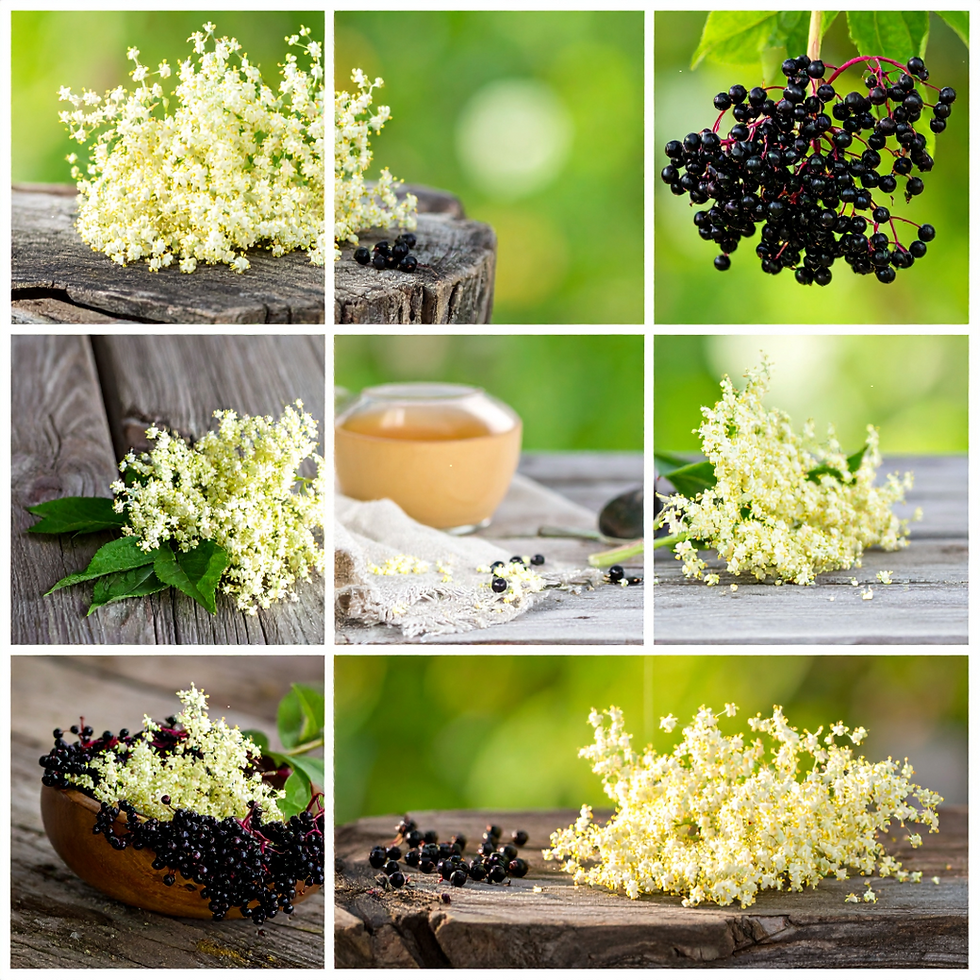Botanical Allies — Herbs and Spices as Nutritional Powerhouses
- Kenneth Wright
- Aug 5, 2025
- 2 min read

Medical Disclaimer: The information provided in this blog series is for general knowledge and educational purposes only. It is not intended to diagnose, treat, cure, or prevent any disease or medical condition. Always consult with a qualified healthcare provider before beginning any new herbal regimen or making significant changes to your health routine, especially if you are pregnant, nursing, have a chronic illness, or are taking prescription medications. Use herbs responsibly and in consultation with trusted professionals.
Herbs and spices are more than just flavor enhancers. Many of them are dense in essential vitamins and minerals, making them valuable additions to any nutritional plan.
Here are some top performers:
Parsley: High in Vitamin K, C, A, iron, and calcium. Use fresh in salads and pestos.
Nettle (Urtica dioica): Rich in iron, calcium, magnesium. Steep as tea or add to soups.
Cinnamon: High in manganese and powerful antioxidants. Try it in teas or oatmeal.
Thyme & Oregano: Provide iron, manganese, calcium, and vitamins A & C. Perfect in savory dishes.
Turmeric: Anti-inflammatory powerhouse, rich in B6 and potassium. Combine with black pepper for better absorption.
Integrate these botanicals through teas, tinctures, or simply cook with them regularly. Herbs are nature's multivitamins, blending flavor and health benefits effortlessly.
For those new to working with herbs, starting with teas is often the easiest and most accessible method. A simple nettle infusion, steeped overnight, creates a mineral-rich tonic that supports everything from bone health to energy levels. Adding fresh or dried herbs to soups and stews is another effortless way to increase nutrient intake without overhauling your entire cooking routine.
Remember, quality matters. Whenever possible, source your herbs organically or grow them yourself. This ensures that you're not unintentionally introducing pesticides or other contaminants into your wellness regimen. Supporting small herbal farms and local growers not only benefits your health but also contributes to a more sustainable and resilient food system.
Beyond nutrition, many herbs offer unique medicinal properties. Cinnamon can help balance blood sugar, turmeric supports joint health, and oregano may aid in immune defense. Using them regularly in small, culinary doses builds a steady foundation of wellness. This cumulative effect is part of what makes Botanical Nutrition such a powerful, sustainable approach.
Experimenting with herb blends and spice mixes can also encourage culinary creativity. Try combining rosemary and thyme with root vegetables, or blend turmeric and ginger into warm beverages. The more comfortable you become using herbs daily, the easier it becomes to rely on them as both food and functional medicine.
Get ready to dig deeper into the world of Botanical Nutrition with our upcoming video series on the Verdigris Market Garden YouTube Channel! 🌿 In this engaging, educational series, Master Herbalist Kenneth Wright will guide you through the fundamentals of nourishing your body with herbs, spices, and whole foods. You’ll learn how to identify nutrient-rich botanicals, avoid the pitfalls of ultra-processed foods, and build your own herbal nutritional toolkit. Whether you’re an aspiring herbalist, a health-conscious foodie, or simply curious about natural wellness, these videos bring the knowledge of the blog series to life with step-by-step demonstrations, real-world examples, and inspiring garden-to-table tips. Subscribe today at Verdigris Market Garden on YouTube so you don’t miss a single episode!
#VerdigrisMarketGarden #BotanicalNutrition #HerbalNutrition #PlantBasedWellness #NaturalHealthLiving #HealingWithHerbs #WholeFoodWellness #HerbalistLife #FromGardenToTable #HerbsForHealth





Comments